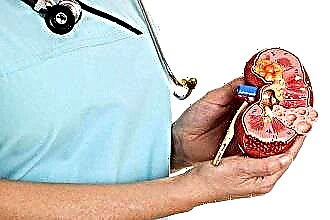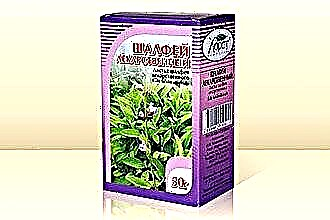Cough is a reflex response of the body to irritation of the respiratory tract receptors. It occurs most often due to the influence of external adverse factors. These include the effects of chemical and toxic substances, tobacco smoke, dust, hot or cold air, infectious pathogens, fungi and their toxins.
How it all starts
 Constant presence in a room with dry air, especially during the heating season, contributes to dryness of the mucous membrane of the respiratory tract and the development of cough as a separate symptom.
Constant presence in a room with dry air, especially during the heating season, contributes to dryness of the mucous membrane of the respiratory tract and the development of cough as a separate symptom.
When assessing bronchospasm, one should take into account the frequency of its manifestation, the strength of the cough impulse and the time of onset (daytime, morning, nighttime, when eating).
Causes of acute cough:
- ARVI;
- bronchial asthma;
- whooping cough;
- inhalation of a foreign body.
The causes of chronic dry cough:
- tuberculous lung disease;
- heart defects;
- pathology of the digestive system;
- neoplasms;
- chronic respiratory diseases;
- diseases of the endocrine system (thyroid gland);
- smoking;
- systematic exposure to stress factors.
A paroxysmal dry cough is a symptom of some internal pathologies and infectious diseases. Its occurrence is facilitated by the long-term use of certain antihypertensive and psychotropic drugs, diuretics. At the same time, attacks of dry cough are mild, there is a slight frequent coughing.
Clinical manifestation
There are acute coughs lasting 7-10 days, subacute - 2-3 weeks, chronic - more than 3 weeks.
- Nocturnal bronchospasm is observed when the body is affected by bordetella, the causative agent of whooping cough. With the improvement of the general condition of the patient, an increase in the symptom is observed. The attack often ends with vomiting. Such a cough is accompanied by reprises - after several cough shocks, there is a holding of breath with a characteristic wheezing breath.
 Regular dry nocturnal cough in an adult with a feeling of suffocation, excitability sometimes indicates bronchial asthma. At the same time, there are no signs of general intoxication of the body: headache, fever, chills. To relieve asthma coughing attacks, use "Berotek", "Pulmicort", "Berodual".
Regular dry nocturnal cough in an adult with a feeling of suffocation, excitability sometimes indicates bronchial asthma. At the same time, there are no signs of general intoxication of the body: headache, fever, chills. To relieve asthma coughing attacks, use "Berotek", "Pulmicort", "Berodual".- Allergic cough, dry, cutting. He is accompanied by edema of the mucous membranes, runny nose, lacrimation. When the allergic agent is eliminated, bronchospasm goes away on its own.
- The disappearance of a persistent dry cough in a horizontal position of the body indicates the likelihood of damage to the pleura (pleurisy).
- A barking cough is observed with inflammation of the larynx and trachea during parainfluenza. It is possible to reduce tracheal cough with the help of "Sinekod", "Teraflu", "Bronholitin". In difficult cases, use corticosteroids and antibiotics as directed by your doctor. A bubbling sound in the throat combined with a ringing dry cough often indicates the development of croup.
- "Metallic" dry bronchospasm, paroxysmal, but not harsh, is a sign of psychological problems. The psychogenic cough is better at night and with sedation.
- Slight coughing or mild dry coughing fits in adults sometimes occur during laughing or long conversation. This is explained by an acquired or congenital pathology - narrowing (stenosis) of the larynx.
- Morning unproductive bronchospasm is typical for people who smoke. Over time, with prolonged and systematic smoking (10-15 years and more), dry cough partially turns into wet one with separation of gray-green sputum. It manifests itself throughout the day with increasing attacks.
There are cases of unproductive cough in adults as a result of the development of laryngeal neoplasms. A similar bronchospasm has a painful paroxysmal character. It is possible to alleviate the patient's condition with the help of antitussive drugs.
Very rarely, the cough reflex is associated with an ear disease (eczema of the outer ear). The reflex occurrence of dry cough with attacks, although not strong, is associated with atypical localization of cough receptors in the external auditory canal. When they are damaged, reflex irritation of the center of the cough occurs. Bronchospasm in this case disappears after the elimination of the underlying disease.
Treatment
 Dry paroxysmal cough should be treated after finding out the cause of its occurrence and making a diagnosis by the doctor. Etiotropic and pathogenetic therapy is used. The first is aimed at eliminating the irritating factor, the second - restores the impaired respiratory functions. Symptomatic therapy involves reducing the cough reflex.
Dry paroxysmal cough should be treated after finding out the cause of its occurrence and making a diagnosis by the doctor. Etiotropic and pathogenetic therapy is used. The first is aimed at eliminating the irritating factor, the second - restores the impaired respiratory functions. Symptomatic therapy involves reducing the cough reflex.
- Drug treatment - pharmacy medicines ("Sinekod", "Erespal", "Codeine", "Stopussin", "ACC", "Ambroxol", "Carbocistein").
- Methods and means of traditional medicine (medicinal decoctions, infusions, teas, warming compresses, inhalations).
Important! Any medication should be used only after being examined by a doctor. Self-medication without a prior diagnosis is extremely dangerous.
If necessary, as prescribed by a doctor, antibacterial agents should be used - "Amoxicillin" (penicillin series), "Ceftriaxone", "Cefatoxin" (cephalosporins) with streptococcal and staphylococcal lesions; "Azithromycin", "Clarithromycin" (macrolides) for chlamydia and mycoplasmosis.
Cough suppression is indicated when it does not perform a cleansing function, does not remove foreign elements (particles, secretions) from the respiratory tract, but only exhausts the patient, leads to muscle pain, vomiting, air accumulation in the pleural cavity (pneumothorax), urinary incontinence, the occurrence of diaphragmatic hernias.
The action of antitussive drugs is based on the ability to reduce the cough reflex. These include drugs with the active ingredient butamirate ("Sinekod"). It is a selective central action drug, it does not cause excessive depression of the respiratory center. Sinekod is effective in treating cough with seizures. Improvement is noted after the first application.
 A dry cough is easy to treat if it occurs when the indoor microclimate is disturbed. To do this, you just need to increase the humidity and reduce the air temperature to 20-22 ° C.
A dry cough is easy to treat if it occurs when the indoor microclimate is disturbed. To do this, you just need to increase the humidity and reduce the air temperature to 20-22 ° C.
Successfully relieve bronchospasm by inhalation of mineral-alkaline water or saline solution using nebulizers or by the classical method - inhaling the vapor of a hot solution. The temperature of the liquid should not exceed 50-60 ° C (steam does not burn the palm).
When coughing, doctors recommend drinking a lot of tea, a decoction of a mixture of chamomile, coltsfoot, linden blossom and sage. Absorbing cough drops will also alleviate the painful condition with dry throat mucosa.
Prophylaxis
Prevention of dry cough involves:
- Strengthening the body's defenses - physical education and sports, hardening, frequent walks in the fresh air.
- Creation of optimal conditions in living and working premises.
- Good nutrition.
- Avoiding crowded places during epidemics.
- Getting rid of bad habits.
- Establishing a favorable psychological atmosphere.
If you have a painful, persistent dry cough, you should go for an examination to a specialist. Do not start self-treatment. This often leads to an aggravation of the inflammatory process and an increase in the symptom.
The success of treatment will depend on the timeliness of elimination of the pathological factor (allergen, infection, mechanical and toxic irritation, stress, congenital pathologies) and immediate adequate therapy.

 Regular dry nocturnal cough in an adult with a feeling of suffocation, excitability sometimes indicates bronchial asthma. At the same time, there are no signs of general intoxication of the body: headache, fever, chills. To relieve asthma coughing attacks, use "Berotek", "Pulmicort", "Berodual".
Regular dry nocturnal cough in an adult with a feeling of suffocation, excitability sometimes indicates bronchial asthma. At the same time, there are no signs of general intoxication of the body: headache, fever, chills. To relieve asthma coughing attacks, use "Berotek", "Pulmicort", "Berodual".

